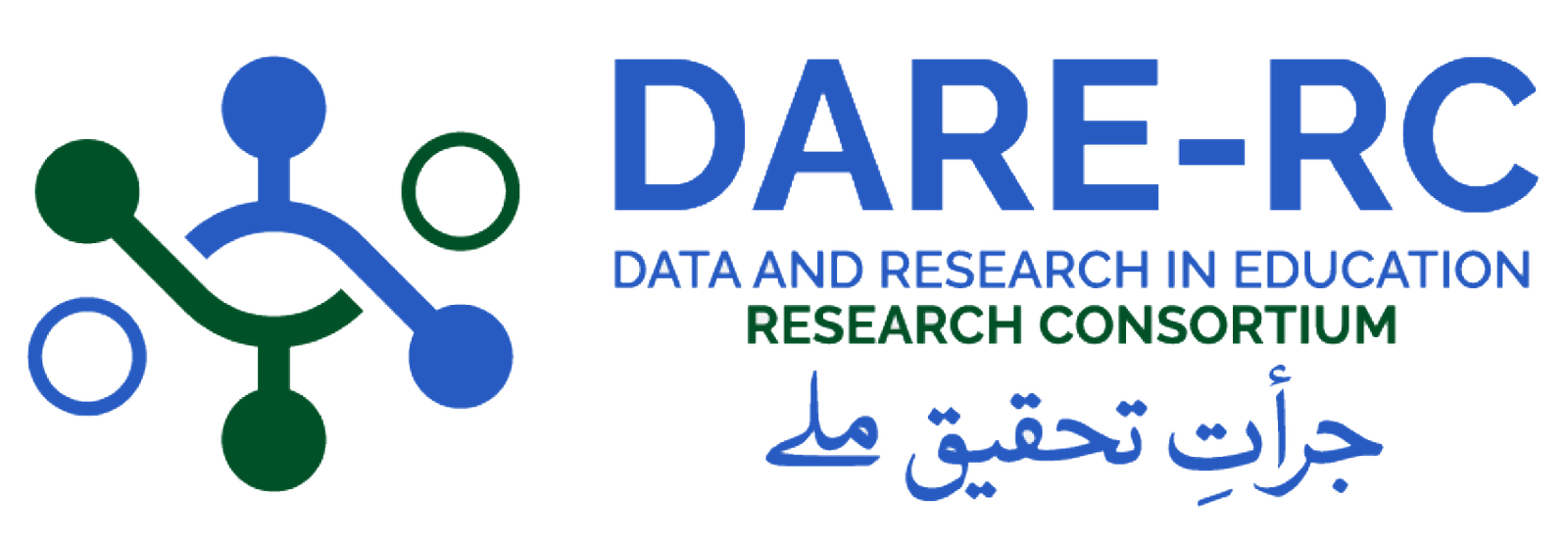The Data and Research in Education – Research Consortium (DARE-RC) successfully hosted a high-profile research symposium, bringing together policymakers, academics, and education practitioners to discuss critical research findings and strategies for improving Pakistan’s education system. The symposium was hosted by Oxford Policy Management (OPM) with consortium partners Aga Khan University Institute of Education (AKU-IED) and Sightsavers as part of the DARE-RC project funded by UK International Development. It featured a series of thought-provoking sessions focused on evidence-based policymaking, teacher development, inclusive education, and scalable solutions to enhance learning outcomes across the country.
The event commenced with welcome remarks, followed by an opening address from Abdur Rauf Khan, Country Director, OPM Pakistan. Dr. Monazza Aslam, Research Director, DARE-RC, presented an overview of the consortium’s vision and progress, emphasizing the role of research in informing policy decisions. She stated, “Through actionable research and strategic collaborations, DARE-RC aims to catalyse a transformative, systems-level shift in Pakistan’s education landscape—enabling inclusive, resilient, and scalable solutions to deliver high-quality learning for all children.”
Ms. Jo Moir, Development Director, FCDO, underscored the United Kingdom’s commitment to supporting robust research initiatives that drive meaningful change. “Through the DARE-RC project, FCDO’s ambition is to build a strong, innovative evidence base of research in education and make it global and have it inform global practice,” she remarked.
The symposium’s keynote address was delivered by Senator Bushra Anjum Butt, Chairperson of the Senate Standing Committee on Education, who highlighted the importance of bridging the gap between research and policy. She stated, “It’s great that programs like DARE-RC exist to bridge the gap between policy and evidence. We look forward to the impact DARE-RC aims to create through its rigorous evidence-based research.”
The agenda featured five key sessions, each led by distinguished researchers and education experts:
- Teachers and Teaching in the Education System: Presentations explored teacher learning as a mediator of teaching quality, digital evolution in teacher development, and the role of language policy in multilingual settings.
- A System Focused on the Marginalised: Discussions centered on disability-inclusive data systems, the lived experiences of children with disabilities, middle school enrolment for girls, and the educational challenges faced by religious minority groups.
- The Role of Communities and Schools in Resilient Education Service Delivery: Researchers examined strategies for fostering resilience in adolescent education, as well as the impact of climate change on schooling policies and community adaptations.
- Accountable Education Systems: The session covered topics such as the impact of Punjab’s teacher e-transfer policy, public-private partnerships in education, and the outsourcing of public schools.
- Effective Data Use and Scalable Solutions: Experts discussed the balance between reaching marginalized communities and scaling interventions, along with predictive modelling for policy impact assessment.
The concluding session provided a platform for participants to brainstorm evidence gaps and policy recommendations, with Dr. Monazza Aslam and Dr. Dilshad Ashraf leading the discussion on the way forward.
The DARE-RC research symposium marked a significant step in fostering an evidence-driven approach to education reform in Pakistan. By engaging key stakeholders in meaningful dialogue, the consortium continues to advance its mission of leveraging rigorous research to shape policies that ensure equitable, high-quality learning opportunities for all children.
